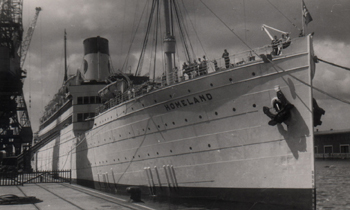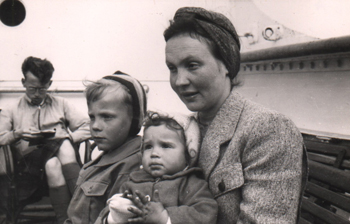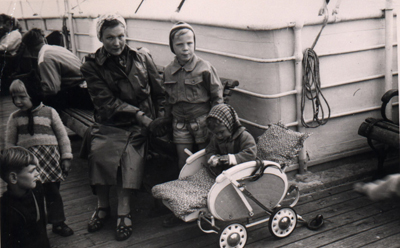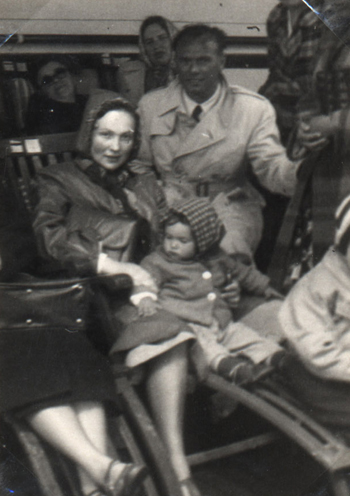Sobey Wall of Honour
Column
57
Row
23
1951 was the first year Germans were allowed to emmigrate to Canada. It was only six years after the war, and the situation in Germany was still unstable. There did not seem to be much future after all the destruction and economic ruin. That's why many Germans tried to emigrate and find a new and better life somewhere else.
We were among the first German families to settle in Halifax. We landed here on the 25th of June 1951. We arrived by ship with two children, aged six and three years old. This made our beginnings very difficult. Here are the first impressions of Halifax, taken and translated from letters:
Land sick after the voyage, tired from the change in climate and depressed by bad news, confused by so many new impressions and without much knowledge of , we started out on our own to look for shelter and work.
On these excursions we met some disappointment!- Halifax is a small city without industry, depending solely on small companies and administration offices. Because most buildings don't have more than one story, the city spreads over a large area. Situated on a peninsula, the houses gather around a dilapidated citadel. We found some German street names like Gottingen, Berlin, Dresden, Brunswick and Coburg, and these are pretty clean streets, whereas Market Street is the center of the slums.
On our search for an apartment we went there, led by an ad in the paper. We passed dilapidated huts with garbage heaps beside them and smoking and gum chewing inhabitants sitting in front of their doors. (What a change since then).
After two and a half very stressful weeks in Halifax, the immigration people found work and housing for us on a farm. We spent a wonderful summer there! But in mid-September 1951 we moved from the farm to a basement on Barrington Street in Halifax, as janitors in an office building. Again from a letter.
We inherited a bed eal here; our predecessors left us a lot of dirt and some unwanted pets, that is fleas, mice and rats. After we flooded the basement several times, went hunting, acquired a cat and used some chemicals, we established the accustomed cleaniness. We earn our living mainly by cleaning and heating the house (an office building), a job that requires about six hours work daily; besides we do the same work ina small bank next door, another two to three hours work. The remainder of the time is spent with orthopedic work (for the doctor's private patients).- Our present job is neither nice nor easy, but nobody has pity on us. All newcomers here have to start modestly and be willing to do hard work. For us this job is only a starting point towards better conditions.
A section from another letter shows our first impression of Canadians, or better Nova Scotians:
Outstanding characteristics of Canadians are kindness and willingness to help. We are told that Nova Scotia's show these traits especially.
When people hear that we are immigrants, they do not ask about our nationality, but first they call us 'newcomers' and then whether we like it here, followed by questions about job and accommodation. We find that the expression 'newcomer' implies that everyone here, one's parents or grandparents, were immigrants at one time. People often state that their ancestors were German. They ask questions about the war experience; they also express their rejection of bombing and wars in general.
Many Europeans arrived in Halifax in those years; almost all of them went on to Ontario or further west. They transferred from the ships to the trains here, and these trains looked to us like 'troop transporters', with all the young men hanging out of the windows, -a reverse role Halifax played during the war!
And following a general statement on emigration:
"Anybody who considers emigrating should realize that you leave behind everything, really everything you had worked for and acquired in the course of time. The few belongings that can be brought along in a few boxes are very, very little at the moment of starting a new life here. Many things, especially cultural habits, friendships etc. cannot be packed! There are many people who cannot come to terms with this separation. Just recently twelve German families went back to Germany by ship!
To end on a positive note: after two and half years of hard living and working conditions, we made great progress. My husband got the promised job at the hospital; we moved into a house of our own and bought a new VW two years later. Gradually our life changed for the better. We overcame the language barrier with new jobs; we made Canadian friends and became part of the community. In 1957 we became Canadian citizens. Halifax as a city has changed, too, from the early 1950s -and I believe that European immigrants contributed greatly to that change.
Heidi Grunke



